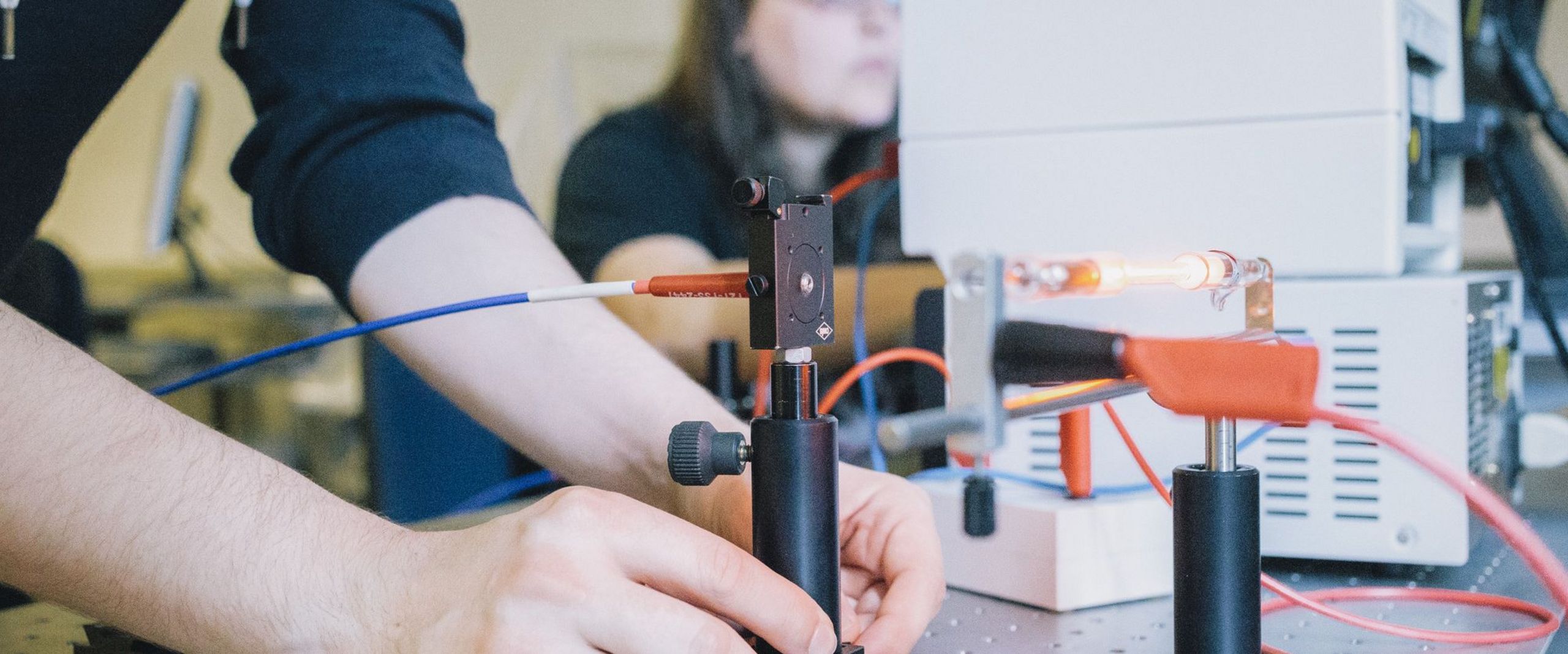
School of Electrical Engineering and Computer Science
| Degree | Bachelor of Science |
|---|---|
| Start of study | Winter semester |
| Application period Winter semester | 01 June until 15 July |
| Standard period of study | 7 semesters |
| Credits | 210 |
| Accredited | Yes
|
| Admission restricted | No |
| Admission requirements | Higher education entrance qualification |
| Language of instruction | German |
| Faculty/institution | School of Electrical Engineering and Computer Science |
| Integrated stay abroad | Optional |
Having fun with physics ... and fun to start your career. In the International Degree Programme Technical and Applied Physics, we place great emphasis on an application-oriented study programme and cooperate very closely with companies. We offer students a wide range of opportunities, excellently equipped laboratories and direct contact with researchers and lecturers.
The degree programme opens up insights into a wide field of innovative technologies and entry to a world of new ideas that will in future shape the lives of all members of society. For example, manufacturing processes with high-power lasers, short-pulse laser technology, sensors for mobile phones, photonic systems for optical data transmission and biological and life science applications.
During your studies, you will gain insights into how new technologies, products and processes are developed. The focus is on physics and the principles of forces, especially in connection with engineering disciplines and methods. This sound foundation in physics enables you to quickly assess engineering scenarios and to find your way in matters surrounding cutting-edge technology. Working in teams, you will learn to appreciate the value of team work and cooperation while developing innovative solution strategies.
The first three semesters cover foundation courses in physics, mathematics, electrical engineering, materials science and chemistry. There is also an introductory course in which you learn methods of scientific work and presentation skills as well as special learning strategies and how to conduct your first experiments in the laboratory. In all courses, great importance is attached to having close contact and an exchange of information between students and lecturers. In the following semesters, you will acquire subject-specific foundation knowledge and competences in laser application, laser development, optical systems and optical fibre technology, microsystems technology and lithography, acoustic and optical sensor technology as well as optical measurement technology.
In the advanced semesters, your newly acquired knowledge is deepened via practical and hands-on application. Many courses are in the form of projects, where working in small groups you address current topics of research and development and develop software and hardware solutions. The programme includes a four-month stay abroad, which is largely organised by the students themselves: see "Internationality".
Working in the natural sciences and engineering cannot be learned on a theoretical basis alone – a problem-solving approach, project and team work must be learned through experience! Comprehensive practical exercises in our modern well-equipped laboratories and the industrial work placement are an essential part of the education. The work on many Bachelor theses actually takes place in private or public companies and enterprises.
During your studies you will undertake numerous laboratory experiments and projects. Knowledge of laser application, laser development, optical systems and fibre optic technology, microsystems technology and lithography, as well as acoustic and optical sensor technology and optical metrology is thus taught in practicals.
The degree programme is internationally oriented. The compulsory stay abroad of at least four months (study or practical semester) qualifies you for dealing with transnational and intercultural issues and opens up greater opportunities for you to reach management positions, especially in technologically oriented professional fields.
You can spend the semester abroad at a university or as an industrial work placement. The semester abroad takes place in the fifth to seventh semester. If it is carried out as a study programme at a university, a 13.5-week industrial placement is also required.
A large number of companies offer further opportunities for practical and company-oriented scientific work within the framework of cooperation arrangements. In just one example, innovative measuring devices for optical fibres and optical surfaces are being manufactured together with our students. And in general, the many contacts of the professors to research institutes ensure access to practice-oriented research. Also, the State of Bremen and the wide-ranging cooperation arrangements with other partners outside the university offer numerous interesting opportunities to work for market leaders in their respective industries.
Check the application deadlines and admission requirements for your desired degree programme.
Questions about the degree programme can be answered by the contact persons on the degree programme pages. If you have any further questions about your decision to study at HSB, our advisory and service institutions will be happy to help.
